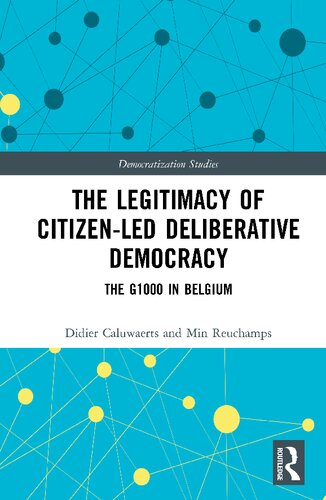

Most ebook files are in PDF format, so you can easily read them using various software such as Foxit Reader or directly on the Google Chrome browser.
Some ebook files are released by publishers in other formats such as .awz, .mobi, .epub, .fb2, etc. You may need to install specific software to read these formats on mobile/PC, such as Calibre.
Please read the tutorial at this link: https://ebookbell.com/faq
We offer FREE conversion to the popular formats you request; however, this may take some time. Therefore, right after payment, please email us, and we will try to provide the service as quickly as possible.
For some exceptional file formats or broken links (if any), please refrain from opening any disputes. Instead, email us first, and we will try to assist within a maximum of 6 hours.
EbookBell Team

0.0
0 reviewsFor deliberative democrats, the strength of any democracy is public deliberation, the frequent and reasoned discussion between citizens on political issues.
Despite all the theoretical claims made about deliberative systems, the question remains how to empirically assess both the legitimacy and function of deliberative systems in the real world and how individual sites of deliberation interact within the larger political system. In other words, what is the legitimacy of each individual component and under which conditions can these components improve the legitimacy of the wider system? These are the central research questions for this book looking particularly through the prism of the citizen-led mini-public G1000 in Belgium, which grew out of a feeling of deep democratic crisis. Offering empirically measurable translations of philosophical concepts, the book enhances our understanding of how political systems function, and of the viability of a deliberative democracy at a larger scale. Finally, it provokes fundamental normative questions on how we want to shape our society, especially divided ones.
This text will be of key interest to scholars, students and practitioners of deliberative democracy, and to those interested in democratic theory and more broadly political science, communication, sociology, and philosophy.